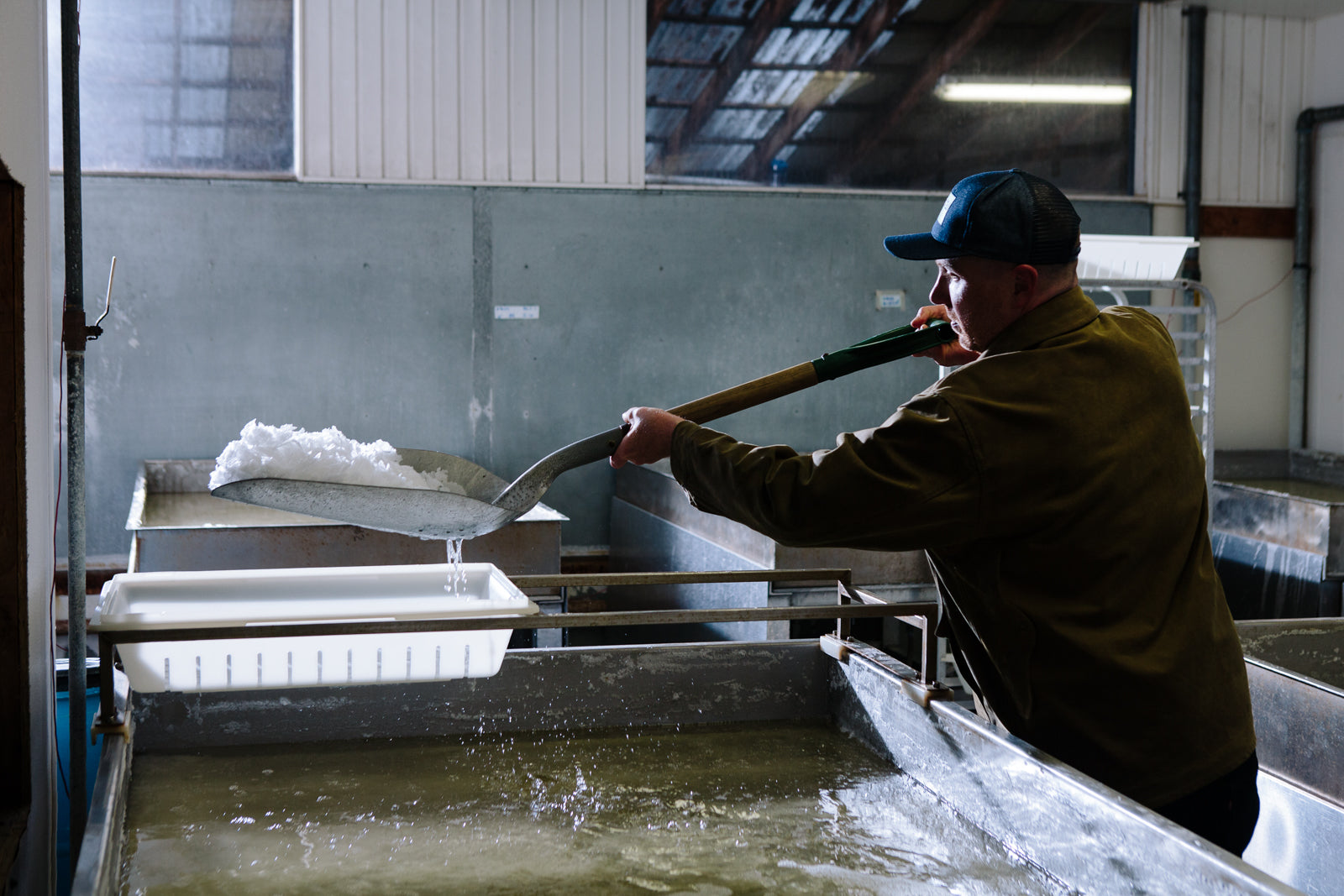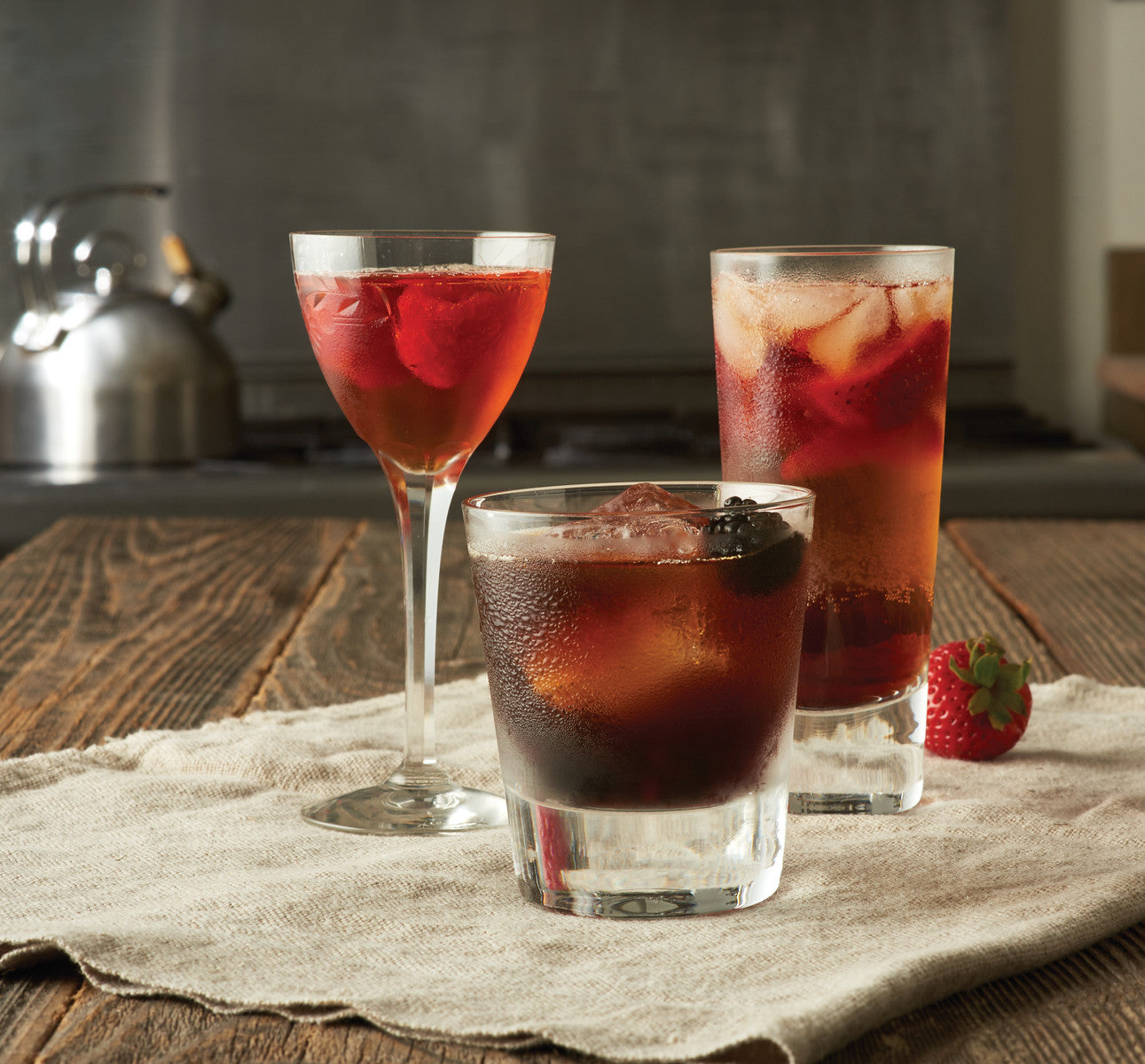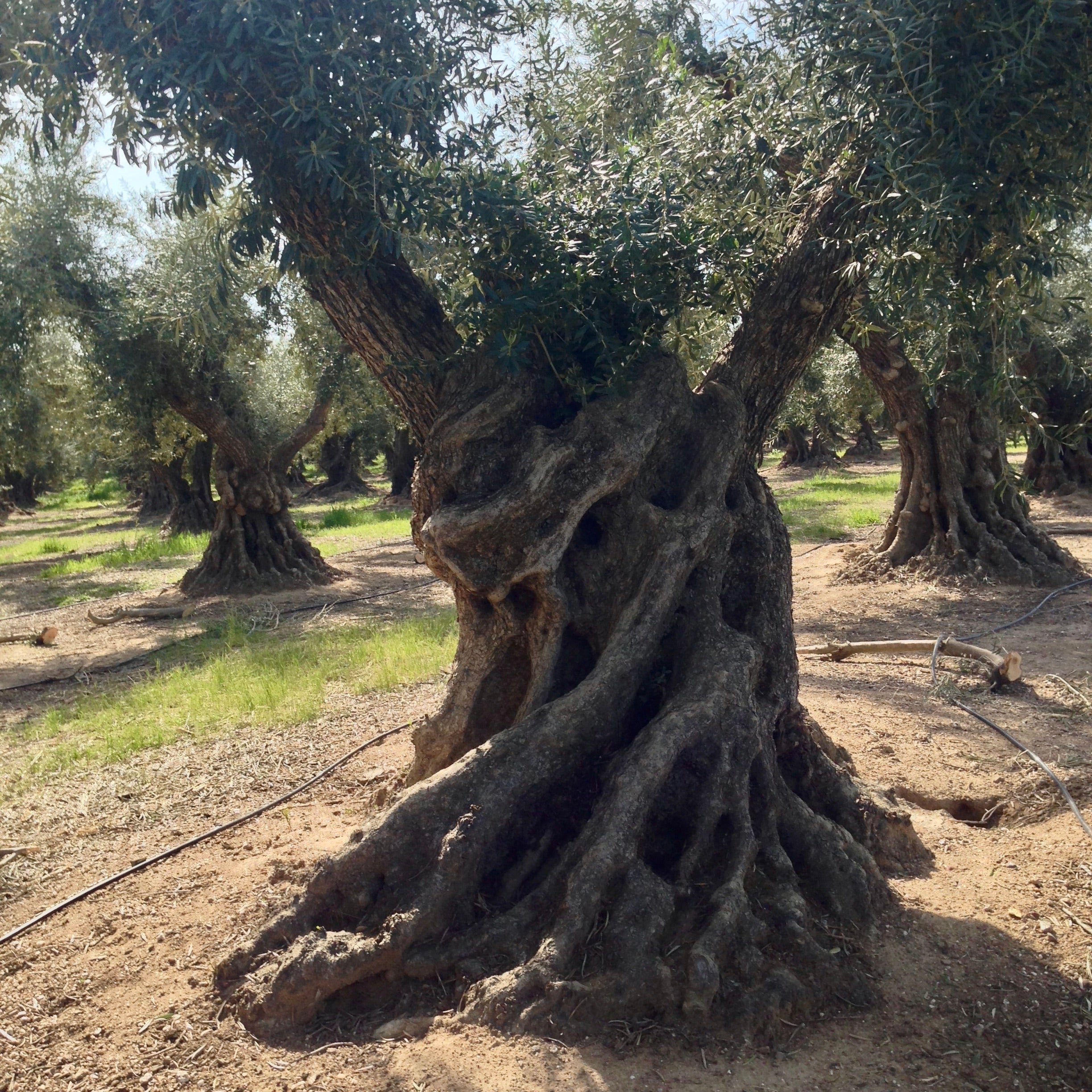
Why Olive Oil Loves Jacobsen Salt
Salt and Olive Oil
An oft remarked characteristic about fresh early harvest extra virgin olive oil is its bitterness. The thought of bitterness in olive oil may initially evoke a negative connotation until you think about the enjoyment derived from leafy greens, matcha, coffee, dark chocolate, and some beer.
Bitterness in olive oil is a sign of phenolic content, the healthy antioxidants that attract many first time users of olive oil, moreover, bitterness also adds a layer of complexity to the other desirable sensations we look for in a good oil. It is one of the three essential attributes of a true extra virgin's character, the other two being fruitiness and pungency.
Most Americans have grown up with highly refined oils--either completely flavorless and odorless or perhaps so mild as to offend as few people as possible. Bitterness in moderation or balanced by other sensations will transform and elevate food, and learning about the best ways to balance flavors is a rewarding pastime or pursuit by cooks and eaters alike.
Such thinking led me to experience my first formal salt tasting July 1995 with Judith Ets-Hokin of San Francisco HomeChef Cooking School fame. Judy's Essential Cooking Series (™) always started with tasting ingredients; the comparison of table salt and sea salt was eye-opening for the entire class, and we quickly perceived that the metallic taste of table salt due to the addition of anti-caking agents was wrong for the delicate sauces we were learning to prepare.

I've since enjoyed various sea salts or mined salts from around the world, each with it's unique color or subtle mineralogy, however, it was with great pleasure that I discovered an artisan American sea salt produced just a few hours drive from us.
Founded in 2011 by Ben Jacobsen, Jacobsen Salt Co. is the first company to harvest salt in the Pacific Northwest since the 1800s. After testing and tasting salt made from coastal waters in 27 different places he selected the estuarial Netarts Bay in Oregon for the exceptionally clean and briny tasting salt it yielded.
The Source: Pristine Seawater
Netarts Bay, which is about 5 miles southwest of Tillamook and 500 miles north of our orchards, is a pristine water source due to natural filtration from abundant commercial oyster beds as well as having very few fresh water inputs. In addition to being the source of Jacobsen Salt Company salts, Netarts Bay is also a premium source of shellfish starts for the entire west coast, and a key source for the Pearl Point oyster prized for its clean, sweet, and light flavor and its tender meat.

The Process: Filtering and Concentrating
Once the bay's water is collected, it is filtered, then transferred into a reverse osmosis machine for further filtering and reduction to a concentrated salt water which is referred to as their pre-brine. Next, the pre-brine is pumped into boil tanks, shown below, where excess minerals are removed and the liquid reduced yet again to a brine. Not only is the initial water source pristine, it is notable that the removal of excess minerals further contributes to the salt's clean flavor on the palate.

The Process: Evaporation, Rinsing, and Dehydration
The next stage in the process includes evaporating the filtered and concentrated seawater in custom pans by carefully heating them.
Once evaporated, flakes are gently scooped from the pans, rinsed, and put onto racks in a dehydrator for drying. This final drying step is what helps give the salt its signature crunchy texture, and it also makes it easier to handle during cooking.

Once dry, the salt is removed from the dehydrator, sifted, graded, and sorted. The entire process of making salt in this manner takes about 2.5 weeks.
The fully formed pyramid-shaped flakes are packed for flake salt, which we offer in a the 17.6 oz "chef-size" jar, while smaller flakes and coarser crystals are packaged for kosher salt, which we offer in the 1 lb canister and a pocket-sized slider tin. Various flavored version will be made available, too.
The Premium Salt Experience
 Jacobsen flake finishing salt's bright salinity and delicate crunch enhance the enjoyment of food; a crunch derived from the elegant crystalline structure salt that naturally forms when carefully evaporated to avoid agglomeration, and its clean flavor comes without any metallic sensations experienced with standard table salt. Common table salt contains sodium aluminosilicate as an anti caking agent; you won't find that here!
Jacobsen flake finishing salt's bright salinity and delicate crunch enhance the enjoyment of food; a crunch derived from the elegant crystalline structure salt that naturally forms when carefully evaporated to avoid agglomeration, and its clean flavor comes without any metallic sensations experienced with standard table salt. Common table salt contains sodium aluminosilicate as an anti caking agent; you won't find that here!





